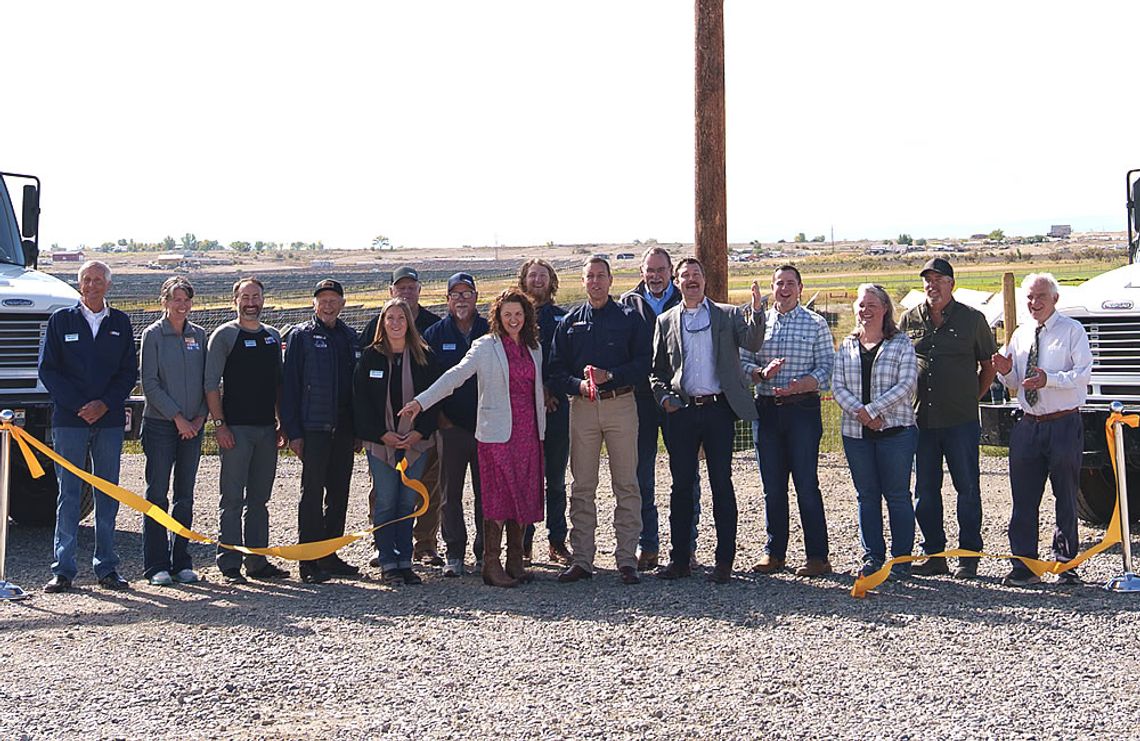A new chapter in renewable energy opened on Colorado’s Western Slope last week as local and state leaders gathered to celebrate the official launch of the Garnet Mesa Solar Project in Delta County.
The 80-megawatt solar facility, developed by Alluvial Power in partnership with Delta-Montrose Electric Association (DMEA) and Guzman Energy, is now fully operational and generating enough electricity to power about 18,000 homes each year.
The project, located just outside Delta, was years in the making and represents one of the largest solar installations on the Western Slope.
It is expected to produce more than 200,000 megawatt-hours of renewable energy annually, helping DMEA and Guzman reduce reliance on fossil fuels while keeping energy costs stable for customers.
At a Sept. 30 ribbon-cutting event, DMEA Board Chair Stacia Cannon called the milestone “a testament to what local collaboration can achieve.” She said the project “embodies the spirit of cooperation between our county, developers, and energy partners,” adding that it was rewarding to see it come to life after years of planning.
Delta County Commissioner Wendell Koontz also spoke at the event, acknowledging the lengthy process to get the project approved. “It wasn’t an easy path,” he said. “There were a lot of opinions and challenges along the way, but we worked through them together.
This project reflects our shared commitment to responsible growth and innovation.”
The solar farm was developed by Alluvial Power, which oversaw design, construction, and long-term planning. Brian McCurdy, Alluvial’s co-founder and CEO, said the company was proud to see Garnet Mesa combine “renewable energy production with agricultural heritage,” noting that the team worked closely with local partners to ensure the site fit the character of Delta County.
Built on about 383 acres, Garnet Mesa Solar is also an agrivoltaic facility—meaning it blends farming with solar power.
Roughly 600 sheep graze beneath and around the solar panels, providing natural vegetation control while maintaining agricultural land use. The grazing operation is managed by Sperry Livestock, a longtime family ranching business in the area.
Will Toor, executive director of the Colorado Energy Office, praised the project as an example of how rural communities can lead in the state’s clean-energy transition. “This is exactly the kind of innovation we need to meet Colorado’s energy goals—projects that create local jobs, respect the land, and keep economic benefits in the community,” Toor said.
The Garnet Mesa Solar Project is part of DMEA’s broader effort to expand local renewable generation.
The cooperative has steadily increased its clean-energy portfolio since ending its decades-long contract with Tri-State Generation and Transmission in 2020, working with Guzman Energy to secure more flexible and affordable power supply options.
Robin Lunt, chief commercial officer at Guzman Energy, said Garnet Mesa is a strong example of what local control can achieve. “Projects like this show how cooperatives and communities can design energy solutions that meet their unique needs,” she said.
As the solar farm begins full operation, power from Garnet Mesa will flow into DMEA’s service area and into the Guzman Energy network, which provides electricity to cooperatives and municipalities across the West.
The site’s hybrid design ensures that energy generation and agricultural activity can coexist for decades to come.
“This project is proof that progress and tradition can work hand in hand,” Cannon said. “It’s something our community can be proud of.”




